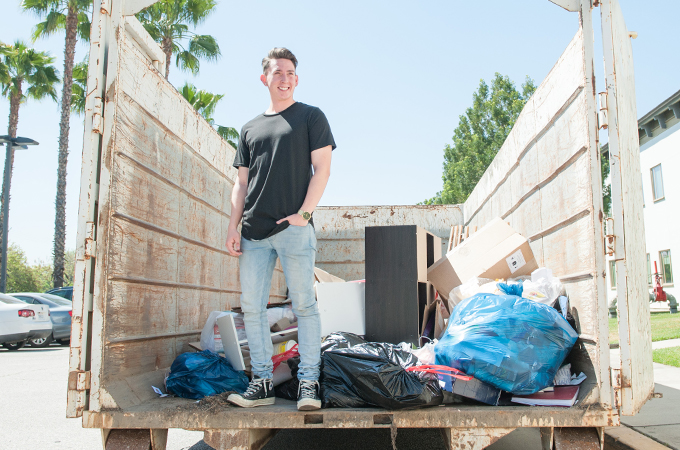At the end of their first year at the University of Redlands, Ryan McDuffie ’21 and former student Floris Van der Vis took note of all the mini fridges, pieces of furniture, and other items that were being thrown away as students emptied their residence halls. A business administration major, McDuffie decided to put his entrepreneurial knowledge to the test and created Unify, an app that he hopes will help promote second-hand use of various items.
The app, accessible by anyone with a Redlands.edu email address through MyRedlands (under “Featured Links”), enables University community members to buy and sell new or used items, such as books, furniture, and clothing, to and from others on campus. While it is similar to other local marketplace websites such as Craigslist and OfferUp, Unify promotes trust between buyers and sellers because transactions occur within the campus community.
“Using Craigslist is great, but it also poses some risks,” says McDuffie, who has wanted to be an entrepreneur since his early high school years. “First of all, sellers have to meet up with complete strangers. Also, they have to find a way to meet up with a buyer off campus, which is another hassle. Unify tackles both of these issues.”
He named the app “Unify,” since it unifies the campus community through trade and plays off the word “university.”
One motivating factor for the app’s creation was to reduce waste. McDuffie and Van der Vis wanted to prevent fellow students from throwing away items that could be reused by someone else. “I’ve always cared about the earth and sustainability,” says McDuffie. “These items that students throw away are polluting the earth when they can easily be used by someone else.”
Creating a listing for an item on Unify is simple. App users just need to create an account and add a title, price, condition, and category for the item, then publish the post. Then the object appears on the site’s homepage with the rest of the items for sale. Currently, 130 users have signed up to use Unify, and there are categories for bikes, electronics, outdoor items, and more.
McDuffie says it took a lot of time and effort to get to this point. The two students conducted extensive research before creating and launching the service. Last year, McDuffie and Van der Vis collected 300 student surveys that provided valuable information about students’ wants and needs.
“We received an overwhelming response from students that told us they wanted a safer and more convenient marketplace—96 percent of people surveyed said that they would use the app if it was created,” says McDuffie.
Throughout the process, McDuffie has learned the importance of persistence and resilience in formulating, developing, and launching a product. Now that Unify is up and working, he is hoping to add a feedback capability so users can voice their opinions to influence future app updates.
“We worked on this project for a year, and I love seeing users sign up and make new posts,” he says. “That’s the biggest reward—witnessing Unify’s use.”






